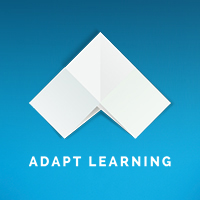This is pre-release software and does not represent the final product. This software should not be installed and used in a production environment, and contains incomplete and buggy source code which is currently undergoing a thorough testing and improvement process.
Adapt is a free and easy to use framework and authoring tool that creates fully responsive, multi-device, HTML5 e-learning content.
The Adapt authoring tool is a web-based user interface for the Adapt Framework. Use it to create responsive, single-version HTML5 e-learning courses for delivery on a web server or SCORM-compliant learning management system.
Interested? See what Adapt can do.
- Web application for creating, editing and publishing Adapt content
- Supports all core extensions and components
- Allows uploading and linking of course assets
- Built on Node.js, Express, MongoDB, and Backbone.js
Visit the developer documentation for more information, including installation instructions, full API documentation, developer guides, and other information.
- Twitter: @AdaptLearning
- Gitter
- Community Site
- Technical Forum
- Bugs / Feature Requests
- Responsive e-Learning Forum
See Contributing to the Adapt authoring tool.
- For help with troubleshooting, visit the Technical Discussion Forum.
- To report a bug, please GitHub Issues.
- To provide feedback, please use the GitHub Issues.
 Adapt is licensed under the GNU General Public License, Version 3.
Adapt is licensed under the GNU General Public License, Version 3.
